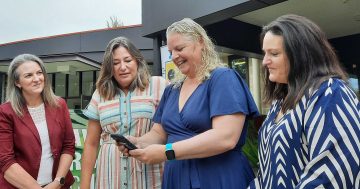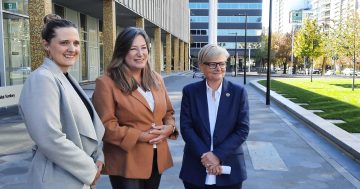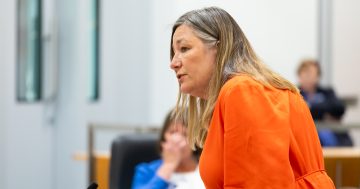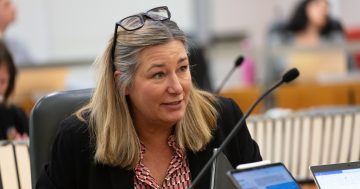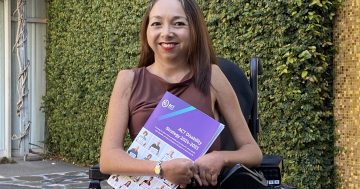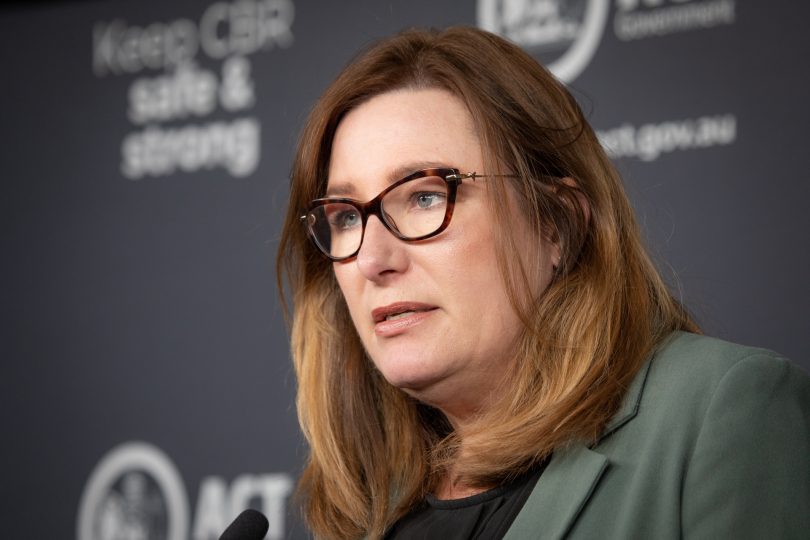
Education Minister Yvette Berry committed to the review last September. Photo: Michelle Kroll.
Another review of how ACT public schools cater for students with disabilities is about to start with a contract awarded to a Canberra consultancy.
Content Group will be paid $92,000 to review the current state and future of education for students with a disability.
The new review is the latest in a number of inquiries over the years. Last May, a Legislative Assembly inquiry heard that some schools were still using restrictive practices to separate children with disabilities from their peers, accessibility was still an issue and that school environments needed to be more adaptable.
Late last year, ACAT criticised an ACT public school principal after a parent was successful in overturning the suspension of a Year 2 child with disabilities who had been locked in a classroom after a string of violent incidents.
Disability advocates say that nearly six years after the handing down of the Schools for all Children and Young People Report, which was instigated by the infamous boy in the cage incident, inclusion is still to be achieved.
Advocacy for Inclusion’s (AFI) policy head Stacy Rheese told Region Media in May that misunderstandings about restrictive practices may be making it difficult for parents to identify when they are happening and teachers may be unaware they are engaging in such practices.
“I think it comes down to a lack of support and resources from schools,” Ms Rheese said.
A spokesperson for Education Minister Yvette Berry said that the Government had committed in September last year to reviewing the delivery of disability education together with people with disabilities and carers, and planning for the renewal of several ageing specialist schools.
“This commitment will build on the extensive consultations already undertaken to ensure students with disabilities, their families and carers, as well as the broader community are engaged in the reform program needed to ensure all students have access to high-quality and inclusive education at their local school,” the spokesperson said.
The spokesperson said that since 2015, the ACT had undertaken significant reforms, consultations and responses to improving education for students with disabilities, including the response to the Schools for all Children and Young People Report.

Advocacy for Inclusion’s policy team leader Stacy Rheese at the Assembly committee hearing in May: “I think it comes down to a lack of support and resources from schools.” Photo: Dominic Giannini.
As at the August 2020 census, there were 2647 students, representing 5.3 per cent of the public school student population, accessing disability education programs at either mainstream or specialist public schools.
According to the contract, the review will look at areas that need reform or strengthening, practices that need to be expanded, ways to design school infrastructure to enhance inclusive education, and what pedagogical models achieve, or don’t achieve, positive outcomes for students with disabilities.
It will cover the full gamut of disabilities and complex needs and hopes to hear from parents, carers, principals, teachers and students, as well as community service and advocacy organisations, and allied health professionals.
The Government expects the review to be run in a way that can capture all views and experiences, through individual and group discussion, online or in person, and submissions in different formats including audio and visual.
It wants the feedback and stories presented in an innovative and visual way such as films and case studies, so they can be accessible to a diverse audience.
ACT Council of Parents and Citizens Associations Policy Officer Veronica Elliott said the organisation welcomed the review and looked forward to participating.
She said there were students and families who did not feel welcome or that they belonged in ACT public schools.














